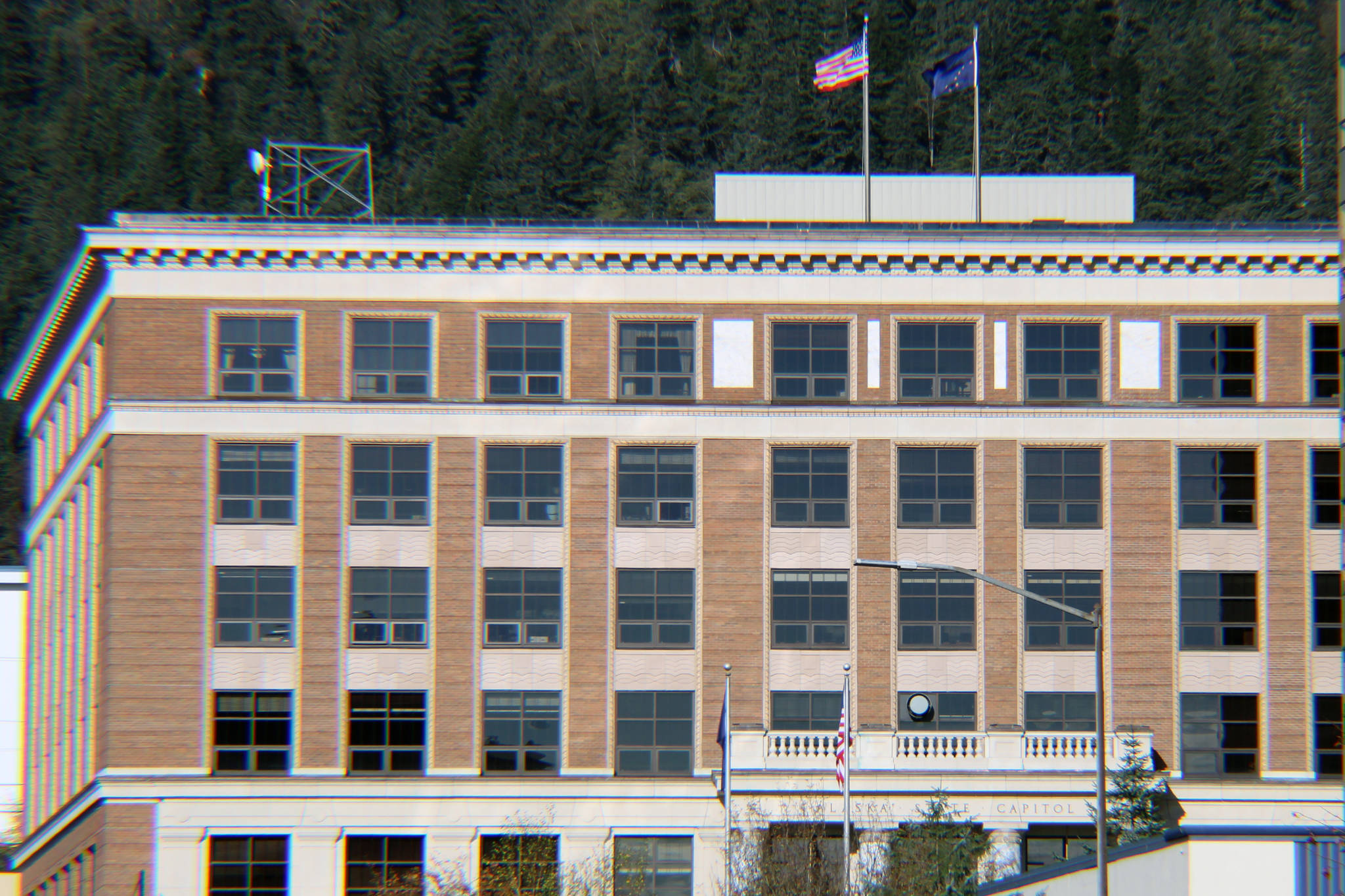By Rich Moniak
Sen. Mike Shower, R-Wasilla, was quite pleased that his budget amendment to pay Alaskans a $2,300 Alaska Permanent Fund dividend was approved. At a casual glance, it could be considered the first installment of the new 50-50 plan presented by Gov. Mike Dunleavy a week earlier. But both are grossly oversimplified attempts to solve a difficult and contentious problem.
Shower first proposed using the 1982 statutory formula for a PFD or around $3,400. It was shot down.
Until two weeks ago, that had consistently been Dunleavy’s position. In fact, he’d been pushing to use the formula to retroactively pay us the money cut from the PFD the prior three years.
This new plan, which he wants enshrined in a constitutional amendment, drops the formula and earmarks a portion of the permanent fund earnings to pay for state government. Both concessions mean Dunleavy has finally recognized he can’t balance the budget with spending cuts alone.
But he’s sticking with his proposed constitutional amendment that would prohibit the state from imposing new taxes without a vote of the people.
Meanwhile, Shower defended the $2,300 PFD by suggesting implementation of a 2% state sales tax could generate $600 million in new annual revenue. Oil tax increases could bring in $300 million more.
It’s another way of saying that a long-term sustainable budget plan will require new taxes. So let’s use that and Shower’s explanation for opposing last year’s oil tax initiative to poke holes in all this.
“The integrity of sound legislation results from processes that are facilitated through open committee hearings, floor debates, et cetera,” he wrote in October.
That didn’t happen with his budget amendment last week. The Anchorage Daily News editorial board called the Senate vote on it “shenanigans,” a “budget charade” and “the Senate’s clown car effort.”
“Tax policy is complex and requires checks and balances, not a simple yes or no vote on a ballot measure,” Shower argued.
It’s true that the Legislature would do their work to pass the Dunleavy’s no-new-tax amendment. But tax policy going forward would be left to the whim of a public vote.
“I disagree with arbitrarily cutting the budget,” Shower claimed. “I support lowering our state government’s operating cost through data-driven decisions, process improvement, and pragmatic budget system design,” which must be done “wisely and with legislation that is exhaustively debated and cross-examined.”
Arbitrarily cutting the budget is what Dunleavy did when vetoed $444 million of it in 2019. And the Legislature never convened to rigorously debate overriding those vetoes.
Furthermore, that argument undermines Dunleavy’s proposed constitutional amendments.
From the campaign trail to his first two years in office, Dunleavy approached the budget like a simple math problem — “expenditures must equal revenue.” But he handicapped one side of his equation by standing firmly against new tax revenue or use of the permanent fund to close the budget gap.
His 50-50 plan doesn’t help. It would take a portion of the fund’s earnings to be equally divided between the PFD and “core state services.” But the governor and Legislature have never reached an agreement on what that means.
Three weeks ago, I argued that the cruise ship initiatives in Juneau were the wrong way to establish public policy. Voters first need a well-developed analysis of the decision they’re being asked to make.
Instead of starting there, Dunleavy’s first attempt to balance the budget relied on drastic schemes never mentioned during his campaign. The budgets of University of Alaska and the Marine Highway system were gutted, public school funding reduced 25%, and assistance to more than 11,000 senior citizens completely cut. And he wanted to increase revenue by taking the local government share of oil and gas taxes.
But he still came up short.
Detailed analysis should have preceded that. Even more, it must replace ideology before asking voters to directly weigh in on state spending, tax policy and the PFD. The governor and legislators should rigorously debate and come to a clear consensus on the definition of “core state services” and their minimum level of funding.
During his time on the Senate Finance Committee, Dunleavy passed up a good opportunity to define those for himself. Not working to get it done during two-plus years as governor is simply lazy leadership.
Rich Moniak is a Juneau resident and retired civil engineer with more than 25 years of experience working in the public sector.

